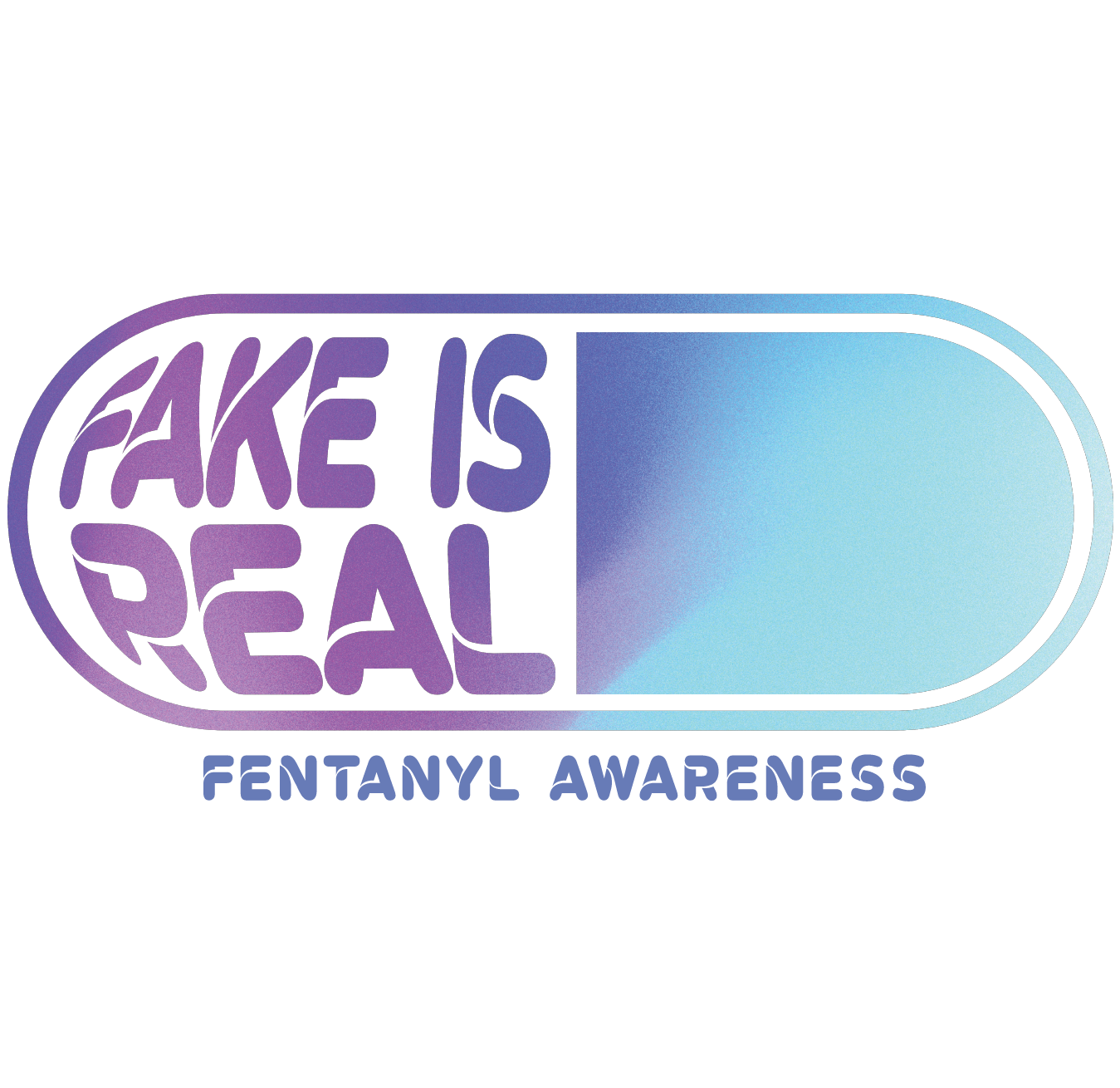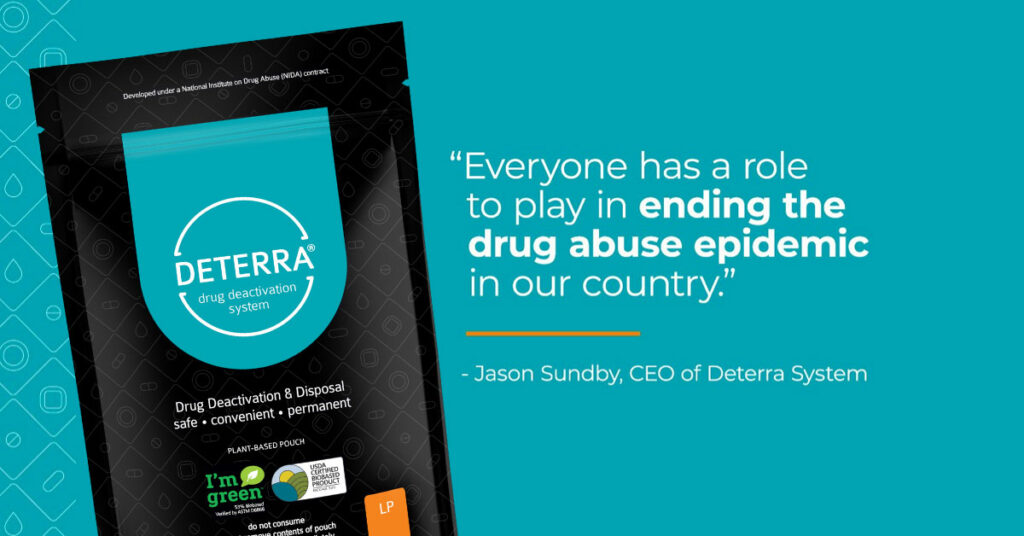It’s important to dispose of unused and unwanted prescription drugs to prevent them from falling into the wrong hands, which could dangerously misuse them. But how you dispose of them makes a big difference for the community and environment.
There are safe ways to get rid of prescription drugs, like take-back days or drop boxes. There are unsafe ways, too. You may want to think twice before flushing them down the toilet or tossing them out with the garbage — those methods risk still-active medication contaminating the local environment and water supply.
There is a good, safe way to both neutralize and dispose of prescriptions at home, and you may have already gotten it in the mail.
Deterra drug disposal pouches were sent to some Northampton County homes in fall 2023 as part of the “Fake is Real” fentanyl awareness campaign, and more homes are to receive them this year. Because the pouches are a safe and effective way to destroy drugs, residents are encouraged to use them to render their old prescriptions and over-the-counter medications inert and ensure they cannot fall into the wrong hands.
Why get rid of prescription drugs?
Unsecured medications present a risk. Young children or pets could accidentally ingest them, elderly people could get confused and take the wrong medicine, or teens could intentionally misuse them.
The National Association of Boards of Pharmacy says there are 35,000 emergency room visits a year for unintentional overdoses in children under 6. There are more than 450,000 calls annually to poison centers for young kids accidentally consuming medication.
Pills can be dangerous enough on their own, but they also can be a gateway to harder drugs. Teens may be pressured by peers into using drugs, or they may seek a coping mechanism. 84% of GenZers say that they turn to pills for stress and anxiety.
Removing unneeded prescriptions from the home can help to mitigate these risks.
How to dispose of prescription drugs in PA?
The Pennsylvania Department of Drug and Alcohol Programs says all medications should be locked up and never shared. When those medications are no longer needed or wanted, there are a few good options for prescription drug disposal.
- Permanent collection sites: Your local police station, pharmacy or health care facility may have boxes to deposit old medicine. Drug take-back locations can be found on the Pa. DDAP website, or by calling the U.S. Drug Enforcement Administration at 800-882-9539. Each location can determine what kinds of prescriptions they are willing to accept.
- Drug take-back events: The DEA periodically will hold a National Drug Take Back Day. One in October 2023 collected approximately 300 tons of medication at more than 4,500 collection sites. All 25 national take-back days to date have accepted almost 9,000 tons of old medicine.
- Deterra drug disposal bags: These special pouches are designed to destroy medications, allowing them to safely be thrown away. They are available for personal use, as well as for businesses and healthcare offices. Northampton County’s “Fake is Real” campaign has even mailed pouches directly to residents’ homes free of charge, making them a great option for at-home drug disposal.
Other methods of disposing of prescription drugs at home are less desirable. Some agencies recommend mixing old medications with coffee ground or cat litter, then sealing it up and throwing it out. That may keep anyone from accidentally taking the medicine, which is better than doing nothing, but the drugs remain active in the landfill and could pose an environmental hazard.
Likewise, flushing medications down the toilet certainly will keep them out of reach, but that can have other negative effects and may even be prohibited in some areas. The Environmental Protection Agency says never to flush prescription and over-the-counter drugs unless the label specifically says it’s OK. That’s because the medicine can leach into ground water through septic tanks. In areas with sewer service, wastewater treatment plants may not be able to remove the drugs from the water, meaning they could pass through the system and into rivers and lakes — or even community drinking water supplies downriver.
Because not everyone has easy access to take-back sites or events, and because other home solutions pose risks of their own, Deterra pouches are a solid, safe option for at-home drug disposal.
How does Deterra work?
Deterra pouches neutralize medications with a carbon pod — just add water!
To use Deterra pouches, put the medications in and fill it halfway with warm tap water. The pod will dissolve and foam up, destroying the drugs by binding to the active ingredients and rendering them completely inert, unable to ever be misused — not just masking them. The pouch can then be sealed, shaken to make sure all the medicines are mitigated, and safely thrown in the trash. Just like that, no active drugs are left to seep into the environment.
The system works on narcotics, antibiotics, hormone therapies, tablets, capsules, liquids, creams, transdermal patches. It will neutralize opioids including fentanyl. It will not work on inorganic medications like antacids and iron supplements, or leaf marijuana.
The carbon involved is non-corrosive, non-toxic, and stable for shipping. The bags come in various sizes to accommodate different quantities of medication, from 15 pills to 450.
Deterra pouches can be ordered online in packs of three except for the largest size, which comes in single units.
Deterra bags do not need to be stored at a specific temperature and do not expire.
Lehigh Valley at the Forefront
Deterra sent pouches to one third of Northampton County county homes in the fall of 2023, and the other two thirds will get them in 2024. But the Lehigh Valley was on board with the brand years earlier.
Lehigh County was part of a 12-county Pennsylvania pilot program back in 2017. Gov. Josh Shapiro was the state’s attorney general then and was in the Lehigh Valley to launch the program, saying at the time that 70 percent of prescription drug abusers obtained them from a friend or relative or find them abandoned and unused inside a medicine cabinet.
“We cannot arrest our way out of this [opioid] crisis … we have got to deal with this in a multidisciplinary way,” Shapiro said at the time, according to a lehighvalleylive.com report.
There were not enough drug drop boxes available to solve the problem on their own, so at-home remedies were necessary. “We’re asking people to take some personal responsibility when they get their prescriptions,” Shapiro said, per lehighvalleylive. “We need you to join this fight and dispose of your unused prescription drugs. We need you to join this fight and help us reverse these dangerous trends that exist here in Pennsylvania and help us win this battle.”
Deterra pouches are available through the brand website, DeterraSystem.com, with a limited supply also available through Fake Is Real.


